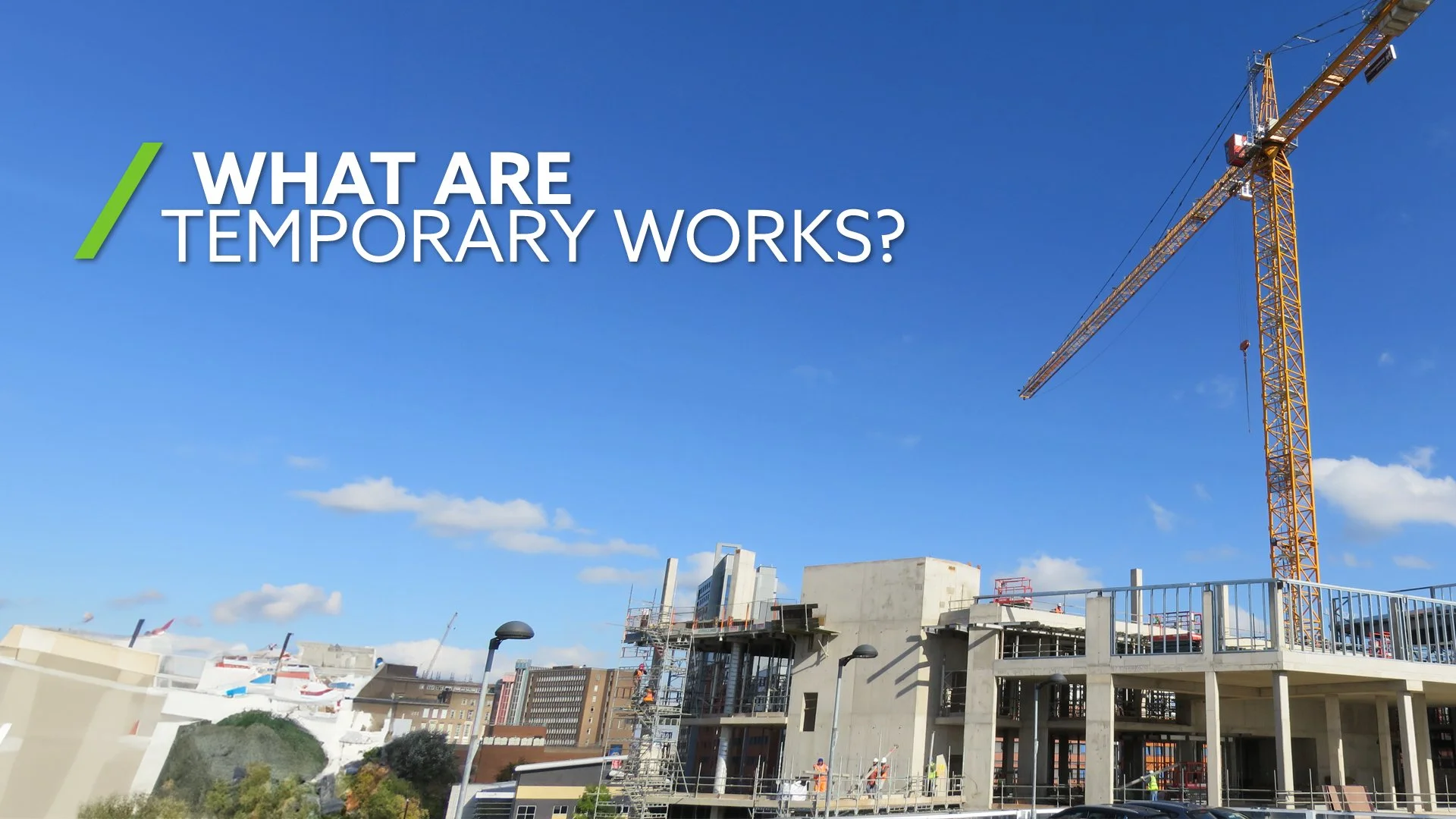
What are Temporary Works?
Watch Our Video
Delve deeper into the world of Temporary Works by watching our informative YouTube video, where we further explore its essential role in contemporary construction projects.
The term Temporary Works refers to short-term structures that enable the construction of, provide protection, support or allow access to, the permanent works during construction.
Examples of temporary works include scaffolding, formwork and falsework, granular working and piling platforms, excavation support, tower crane foundations and propping and needling to name but a few items.
In addition, the permanent structure in a part complete state can also come under the category of Temporary Works. An example of this is a steel frame which requires temporary bracing to provide lateral stability until the remaining structure, which could include rigid concrete cores and floors that provide diaphragm action, is fully complete.
Temporary works are structures in their own right and need to be competently designed and checked to ensure that they are structurally adequate and suitable for their intended purpose. Temporary Works design is intrinsically linked with construction methodology and Temporary Works designers therefore need a sound understanding of on-site processes, construction methods and the challenges faced by the site team. In addition, up-to-date knowledge of proprietary equipment and materials is essential in ensuring that the design solutions being offered embody innovative techniques and make appropriate use of technological advancements in the industry.
For this reason, our team comprises of individuals who have had experience of working in practical, ‘hands on’ site based roles with main contractors and also in consultancies where they have spent time designing and detailing temporary works schemes.
When choosing a Temporary Works consultant for your project, it should be remembered that temporary structures are often subjected to concentrated, eccentric and variable loading patterns which differ from those acting on standard permanent works. Specialist knowledge is key to ensuring safe and cost-efficient design – get in touch to see how we can help and find out what sets us apart.


